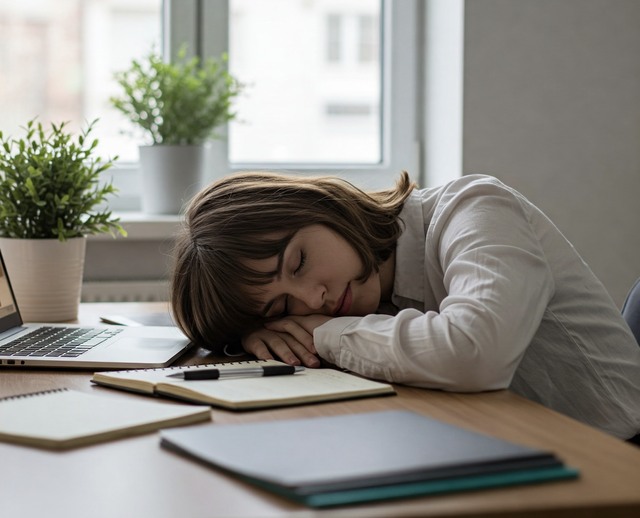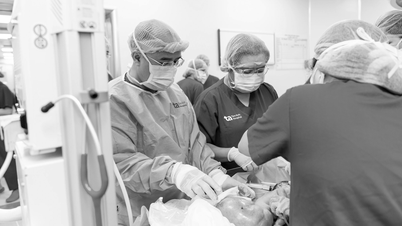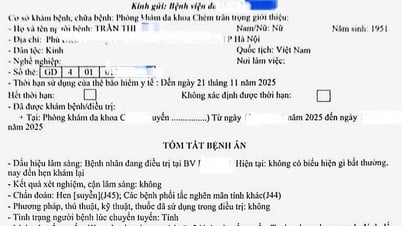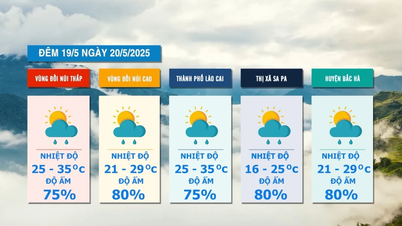A short nap in the afternoon allows the brain to rest, helping you wake up feeling refreshed. Especially for those who have interrupted sleep due to irregular schedules or have to do work that requires high concentration, a timely nap is enough to regain alertness, reduce the risk of making mistakes and causing accidents, according to the Independent newspaper.
However, the newspaper also cited studies that show napping for too long can make you wake up feeling worse than before. This is because "sleep inertia" causes drowsiness and disorientation. Napping too late can even make it difficult to fall asleep at night because it reduces "sleep pressure accumulation" - the body's natural drive to sleep.
Taking a nap the wrong way does more harm than good.
Photo: AI
On the other hand, when napping for longer than 30 minutes, the brain enters deep sleep, making it much more difficult to wake up. Studies show that waking up from deep sleep can leave people feeling groggy for up to an hour. This can have serious consequences if they then attempt to perform safety-critical tasks, make decisions, or operate machinery.
Dr Talar Moukhtarian, a mental health expert at Warwick Medical School, University of Warwick (UK), wrote in the Independent that people with chronic insomnia are often advised to avoid napping altogether because it can reduce their need for sleep at night.
How to take an effective nap
To nap effectively, this expert recommends that we only keep the nap from 10 to 20 minutes and do it before 2 p.m. At the same time, the nap should also take place in a cool, dark, quiet environment similar to the conditions of sleeping at night.
“Eye masks and noise-canceling headphones can be helpful, especially for people who nap in bright or noisy environments,” says Talar Moukhtarian, PhD. However, depending on your age, lifestyle, and habits, each person will build a suitable nap schedule for themselves.
Source: https://thanhnien.vn/ngu-trua-sai-cach-hai-nhieu-hon-loi-185250404224756523.htm




![[Photo] General Secretary To Lam attends the conference to review 10 years of implementing Directive No. 05 of the Politburo and evaluate the results of implementing Regulation No. 09 of the Central Public Security Party Committee.](https://vphoto.vietnam.vn/thumb/1200x675/vietnam/resource/IMAGE/2025/5/19/2f44458c655a4403acd7929dbbfa5039)
![[Photo] President Luong Cuong presents the 40-year Party membership badge to Chief of the Office of the President Le Khanh Hai](https://vphoto.vietnam.vn/thumb/1200x675/vietnam/resource/IMAGE/2025/5/19/a22bc55dd7bf4a2ab7e3958d32282c15)
![[Photo] Close-up of Tang Long Bridge, Thu Duc City after repairing rutting](https://vphoto.vietnam.vn/thumb/1200x675/vietnam/resource/IMAGE/2025/5/19/086736d9d11f43198f5bd8d78df9bd41)

![[Photo] Panorama of the Opening Ceremony of the 43rd Nhan Dan Newspaper National Table Tennis Championship](https://vphoto.vietnam.vn/thumb/1200x675/vietnam/resource/IMAGE/2025/5/19/5e22950340b941309280448198bcf1d9)



















![[Photo] Prime Minister Pham Minh Chinh inspects the progress of the National Exhibition and Fair Center project](https://vphoto.vietnam.vn/thumb/1200x675/vietnam/resource/IMAGE/2025/5/19/35189ac8807140d897ad2b7d2583fbae)




























































![[VIDEO] - Enhancing the value of Quang Nam OCOP products through trade connections](https://vphoto.vietnam.vn/thumb/402x226/vietnam/resource/IMAGE/2025/5/17/5be5b5fff1f14914986fad159097a677)




Comment (0)